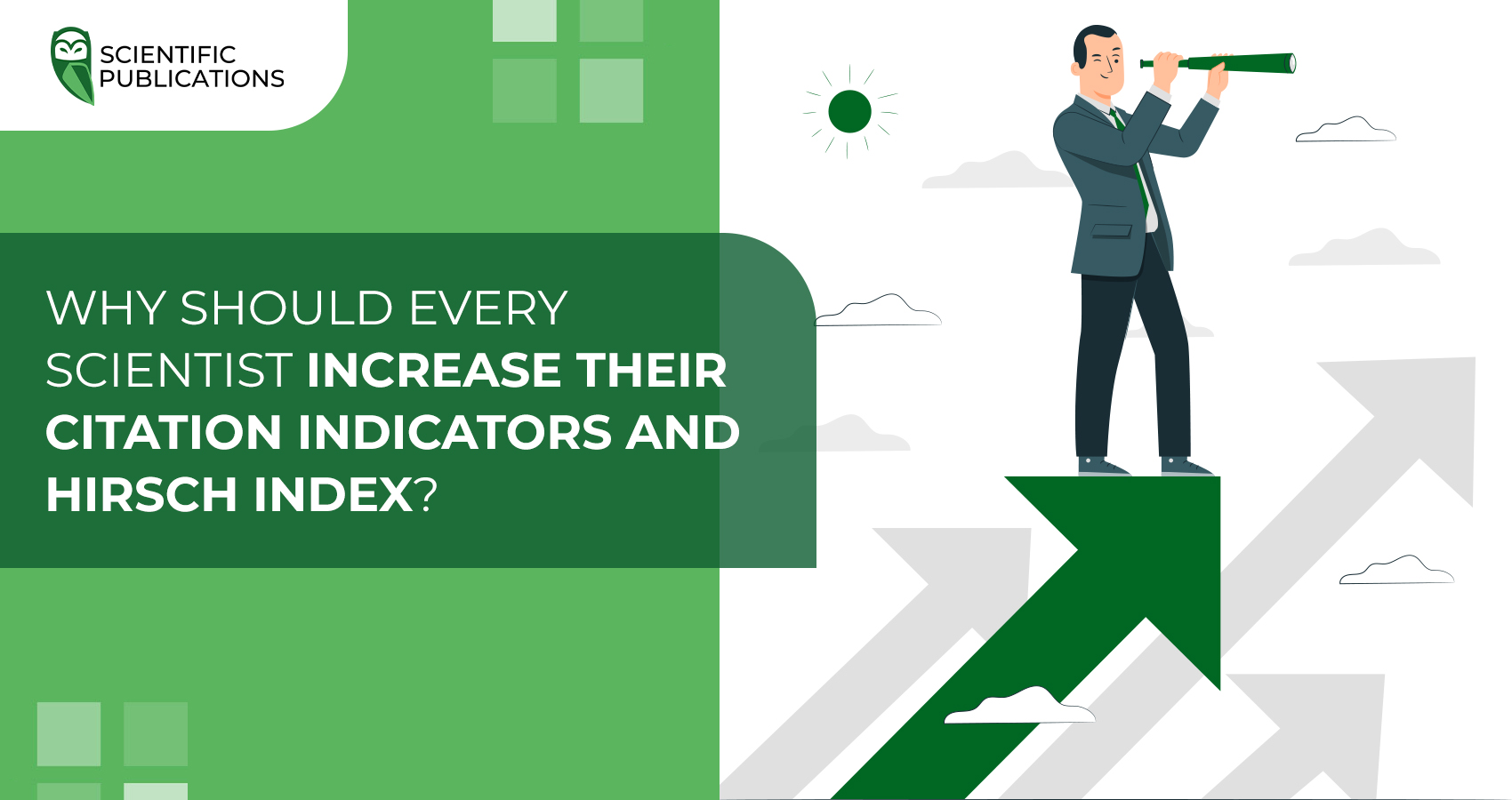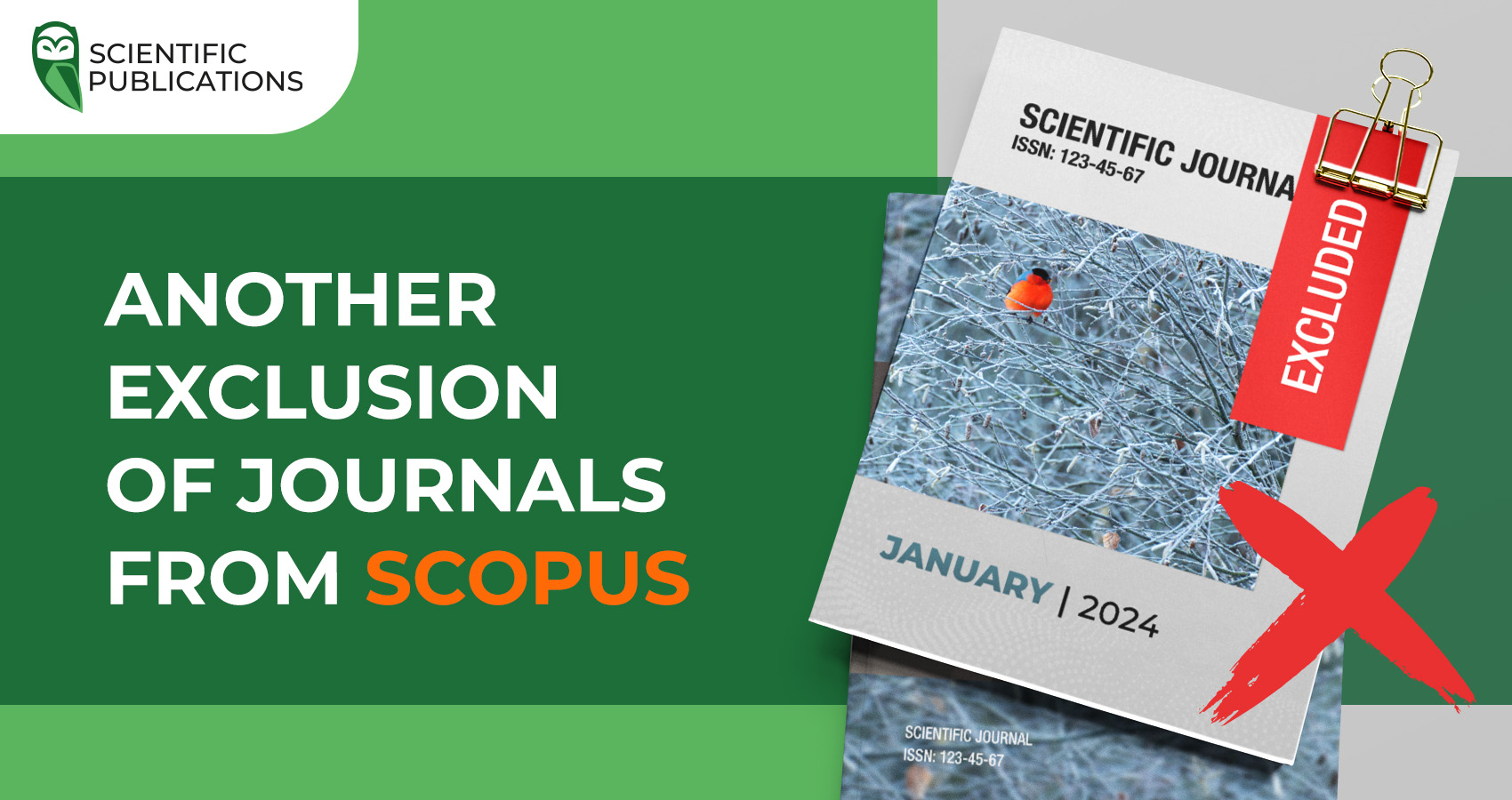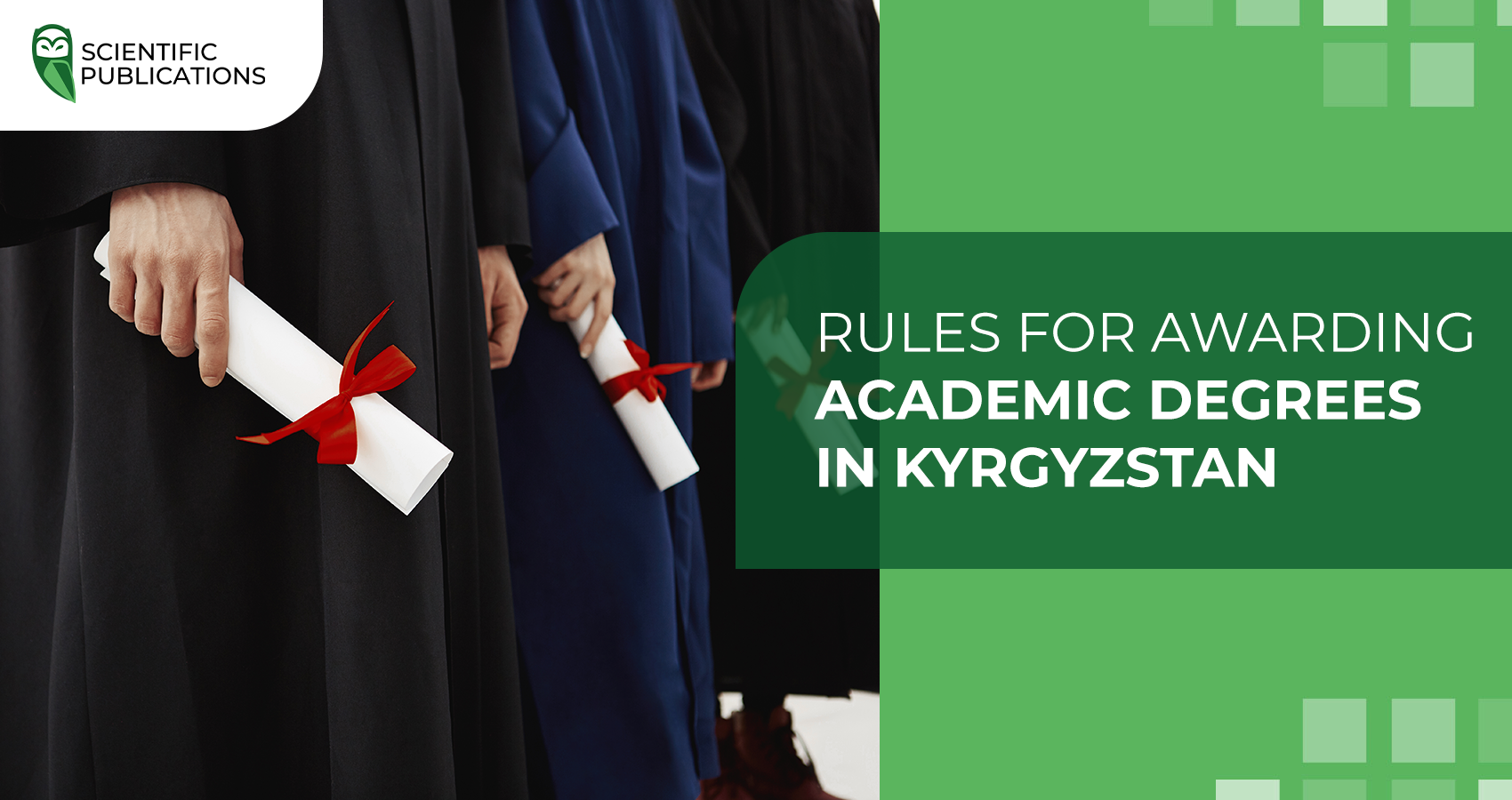A large number of researchers believe that the work on a scientific article ends at the moment of its publication and indexing. However, in practice everything is somewhat more complicated. After all, with the publication of a study, a new stage of work with scientific material begins - its popularization in order to increase the scientometric indicators of a scientist. The most significant of them include citation and Hirsch index. Unfortunately, however, a large number of researchers underestimate their role. Let us consider why a scientist should develop his/her own scientometric indicators, which metrics should be used on which platforms, and some reasons for low publication rates.

Индекс Хирша, цитирование и другие метрики деятельности ученого
Основными метриками, отражающими популярность научных наработок исследователя, являются:
-
Индекс Хирша (h-index) – метрика, которая указывает на взаимозависимость количества научных работ к их цитированию.
-
Индекс цитируемости – показатель влиятельности ученого, который определяется как количество ссылок на его труды другими исследователями.
Конечно, существует и большое количество смежных метрик для оценки эффективности публикационной деятельности ученого, например m-index, g-index, i-index, individual h-index, a-indех. Однако все они имеют меньшую влиятельность, чем проанализированные выше показатели и в основном ориентируются в расчетах на цитируемость научных материалов.
Why is it necessary to increase scientometric indicators?
In general understanding, the popularization of scientific articles and scientometric characteristics of research papers directly affects the formation of a positive image of the researcher. It is quite natural that the more times a scientist's opinion is referred to by his colleagues, the more authority he will have in the scientific society.
However, what advantages will a researcher with high citation rates and Hirsch index get?
-
Preceiving funding and grants. Suppose two scientists with similar relevant experience and publication activity apply for a grant. However, one has high citation rates and the other has negligible citation rates. The sponsor will prefer the first scientist because he or she will be confident that he or she will produce high quality research that will be of great value in scientific circles.
-
Opportunity to collaborate with renowned scientists. High citation rates ensure the researcher's entry into the scientific vanguard. The most important scientists from all over the world will be interested in conducting joint research with a specialist with high scientometric indicators.
-
Obtaining the status of a reviewer or a member of the editorial board of a scientific publication. An influential researcher will be invited to collaborate by quality journals indexed in international databases, because such a scientist has confirmed his/her expertise by obtaining high scientometric indicators.
-
Becoming a member of scientific and dissertation councils. Only experienced scientists with a high Hirsch index and citation rate get the right to evaluate the research work of other colleagues.
-
The possibility of receiving prestigious scientific awards. For example, every year the company Clarivate, which owns the Web of Science platform, publishes a rating of the most highly cited researchers. Almost all scientists dream of getting into it, because entering such rating lists actually means a Nobel level of research. Such scientists can receive prestigious scientific prizes and take part in world-famous research competitions.
-
Increasing the overall rating of the scientific institution. Collaboration with leading researchers is an indicator of the influence of a scientific institution or university. Thanks to this, such organizations are more likely to be included in international rankings, which in the future may mean additional funding.
-
Realization of individual scientific goals. Sometimes increasing the Hirsch index or citation rate is a necessity for a scientist. For example, the normative indicator h-index is established at the legislative level for awarding academic titles in some European countries.
Which platforms should be targeted? Scopus, Web of Science and Google Scholar
To understand the importance of a researcher's work, it is necessary to analyze his or her profile in the international scientific metrics databases, Scopus and Web of Science, as well as the Google Scholar platform.
In order to track the author's performance in Scopus and Web of Science, it is necessary to understand exactly in which editions the scientist has published his works and within which platform they are indexed. Thus, each scientist can familiarize himself with:
-
Citation rates, i.e. the actual number of citations to his/her work by other researchers whose articles are indexed in Scopus or Web of Science journals.
-
Hirsch index of a scientist, which depends not only on the level of citation, but also on the number of indexed articles within the framework of scientometric databases.
High indicators of a scientist's scientific activity Scopus and Web of Science are evaluated as very authoritative by the world scientific society, since for their calculations the references placed within the databases themselves are taken into account.
The Google Scholar platform and the scientist's activity indicators within it give a more complete assessment of the researcher's publication activity. Since not only indexed articles in Scopus and Web of Science are taken into account, but also published materials in journals with a lower rating. In addition, other types of scientific works are also displayed in the author's profile. However, there is some discussion about equating citations of different kinds of materials.
Some reasons for low scientometric indicators
It should be noted that a small number of references to an author's work in Scopus, Web of Science or Google Scholar does not always indicate a low level of scientific articles. Often the cause of the problem is a purely technical error. For example, incorrect author profile design, the presence of several personal pages, poor transliteration, technical nuances of the platforms themselves, and much more.
The company "Scientific Publications" provides services to increase the author profile indicators in Scopus, Web of Science and Google Scholar. If you contact our specialists, you will receive a comprehensive assessment of your profile, settlement of all technical issues, ensuring organic increase in citation and Hirsch index, as well as full support by a personal manager with individual recommendations. As a result, you will receive an organic increase in the necessary scientometric indicators to the required level.
We will be glad to cooperate with you!





